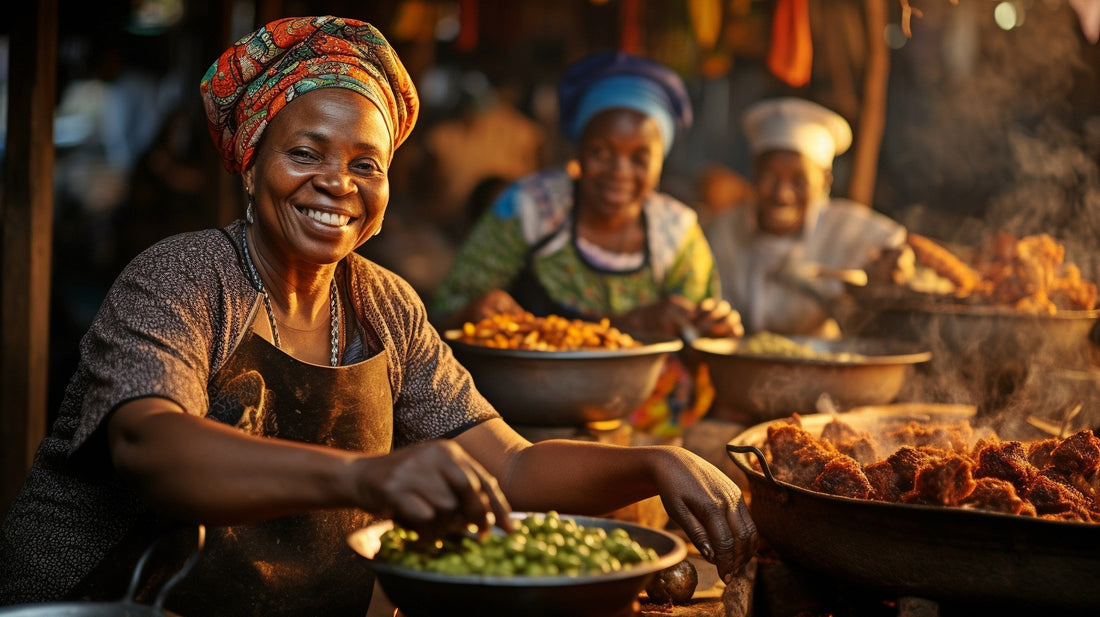Across Africa’s 54 countries and thousands of ethnic groups, one theme is consistent: Food is not just nourishment - it is a celebration of community, culture, and connection. Whether it’s a family meal in Lagos, a street food feast in Addis Ababa, or a ceremonial dish in Dakar, African cuisine teaches us that the act of eating is deeply communal and symbolic.
The Power of Shared Meals: Eating Together, Living Together
In many African societies, meals are traditionally shared from a communal bowl or platter, symbolizing unity and trust. This practice reinforces family bonds, teaches respect for elders, and instills a sense of belonging. In West Africa, dishes like jollof rice, egusi soup, and fufu are often placed in the centre of the table for everyone to eat from—no individual plates, just a collective experience. According to a 2022 report by the African Union’s Department of Social Affairs, over 70% of Africans still engage in communal eating practices in both rural and urban areas, reinforcing the cultural importance of togetherness.
Cuisine as Cultural Transmission: Recipes That Tell Stories
Food in Africa is a living archive. Recipes are handed down orally, often by mothers and grandmothers, and each dish tells a story about the people, the land, and the heritage it comes from. For example:
- Injera in Ethiopia and Eritrea is more than a staple; it’s used as both plate and utensil, emphasizing the value of resourcefulness and sharing.
- Tagine in North Africa reflects centuries of Arab, Berber, and French influence, highlighting the continent’s layered identity.
- Nsima in Malawi or ugali in Kenya is eaten with the hands, reinforcing the intimacy and tactile connection to food.
These meals are often prepared for extended families, neighbours, or entire villages during weddings, funerals, harvests, and religious celebrations—further strengthening the social fabric.
Street Food as a Social Equalizer: Gathering in The Open
In bustling cities like Accra, Nairobi, and Johannesburg, street food stalls offer more than convenience—they serve as meeting points for people across all walks of life. From suya stands in Nigeria to nyama choma grills in Kenya, these spaces democratize cuisine and build informal yet powerful connections among strangers.
According to a 2021 study by the African Development Bank, street food employs up to 60% of urban informal workers in some African countries, contributing not just to economic survival but also to urban community dynamics.
A Global Legacy of Togetherness: Diaspora Dining Traditions
The African diaspora has carried these values globally. From soul food gatherings in the U.S. to Caribbean cookouts and Brazilian feijoada feasts, the communal spirit of African cuisine lives on. These meals often serve as cultural touchstones— celebrating heritage, identity, and unity, especially in immigrant and displaced communities.
More Than Food, A Way of Life
African cuisine reminds us that eating is not an individual act—it’s a communal ritual, a teaching tool, and a symbol of togetherness. Whether shared in rural homes or city streets, meals are where stories are told, lessons are learned, and love is given. In a world that often rushes through meals, African culinary traditions invite us to slow down, gather together, and nourish not just the body—but the spirit of community
Written by Frank Adah
Original article: https://blackheritagevoyages.quora.com/What-African-Cuisine-Teaches-Us-About-Community

